
8 of the Best Translated Historical Fiction Novels
Translated fiction provides a window into cultures and experiences outside the ones we know. It’s one of the reasons I love to read novels in translation. They’re a marriage between two writers, author and translator, working together to tell two different stories the same way. That’s a feat in and of itself, especially since most people can’t or don’t read a novel in both its original and translated languages to note similarities and differences. How genuinely does the translator capture the original author’s voice, prose, tone? Most of us will never know. But on the other hand, we gain access to a story we might never read otherwise. And stories, like languages, provide so much insight into how people think.
Translated historical fiction adds the element of a place’s unique history, as well. These eight translated historical fiction novels tackle colonialist pasts, reimagine empires, and feature some real people and places. You’ll be swept away in the prose — prose that took not one but two writers to get to you — and lose yourself in incredible stories set in near and faraway places. It’s the perfect start to explore the world because only through learning about the past can we begin to understand what’s going on in the present.
The Best of Translated Historical Fiction

You Dreamed of Empires by Álvaro Enrigue, translated by Natasha Wimmer
In Enrigue’s reimagining of the conquistadors arrival in Tenochtitlan, things don’t go exactly as history had planned. Moctezuma lives in a mushroom induced haze and Hernán Cortés believes his translator Malinalli, a Nahua princess enslaved by the Maya, will be their secret weapon against the Aztecs. But all is not as it seems, and the assumptions everyone makes will soon be their downfall.
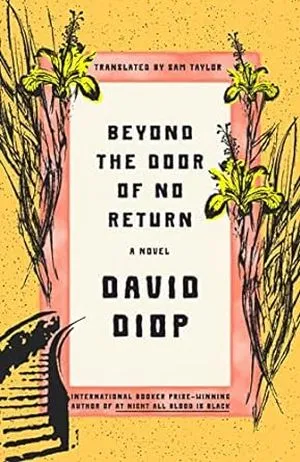
Beyond the Door of No Return by David Diop, translated by Sam Taylor
Aglaé and her father only grew close late in life. His obsession with finishing a comprehensive botanical encyclopedia left him no time for the wife who eventually divorced him or the daughter who yearned for his attention. But when Aglaé discovers a series of journal entries addressed to her by her late father, she begins to understand the experiences he was trying to run from by burying himself in work. Michel Adason’s expedition to Senegal is not exactly what was recounted in his published account. And now, Aglaé will finally be able to understand why her father hid the truth — and is telling her now.
David Diop is an exemplary writer of historical fiction. His first novel, translated into English, At Night All Blood is Black, follows the surreal horrors of a Senegalese man and his best friend on the front lines of WWI and is equally worth a read.
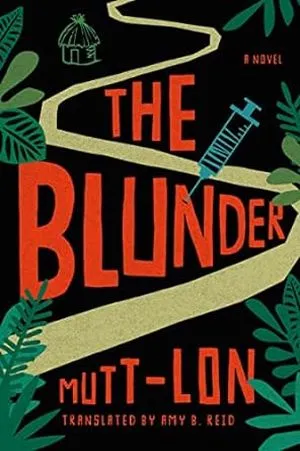
The Blunder by Mutt-Lon, translated by Amy B. Reid
In 1929, a French military doctor dispatched to Cameroon to help with an epidemic of sleep sickness realizes a doctor under his watch has committed medical malpractice so severe that hundreds have been left blind. Now, a grieving mother desperate to redeem herself must set off across the forest to find a missing Cameroonian princess before this case of malpractice can lead to all-out war.

The Court Dancer by Kyung-sook Shin, translated by Anton Hur
Based on the true story of an orphan taken under the wing of an Empress during Joseon-era Korea, The Court Dancer follows Yi Jin as she captures the attention of a French diplomat and journeys to France, where she begins translating and publishing Joseon literature. Grief and homesickness eventually bring her back to the Joseon court, but tragedy awaits her. Instead of a warm welcome, Yi Jin arrives home only for her beloved empress to be assassinated.
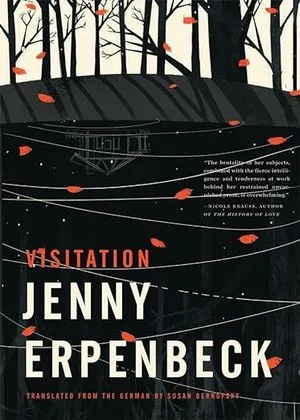
Visitation by Jenny Erpenbeck, translated by Susan Bernofsky
In a house in the woods outside Berlin, people come and go. From the nineteenth century through the Weimar Republic, two World Wars, and the Socialist German Democratic Republic and its eventual reunification, twelve different people seek shelter in this house. It is the house, more than the people, who stars in this story, where violence, upheaval, and reconciliation change the face of the country even as some fundamental things stay the same.
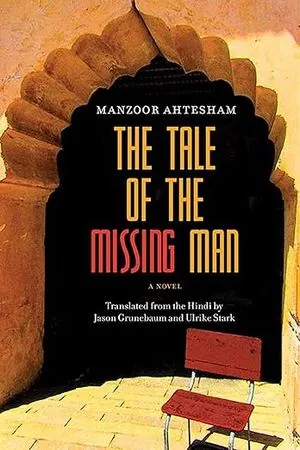
The Tale of the Missing Man by Manzoor Ahtesham, translated by Jason Grunebaum and Ulrike Stark
Following the 1947 partition of India and Pakistan, Zamir Ahmad Khan feels alienated and adrift, stuck in memories of his childhood, his writing, and his hometown of Bhopal. Khan’s story is one of an identity crisis, both on a personal and political scale, as regions are divided and people are separated by a new border drawn on the map.
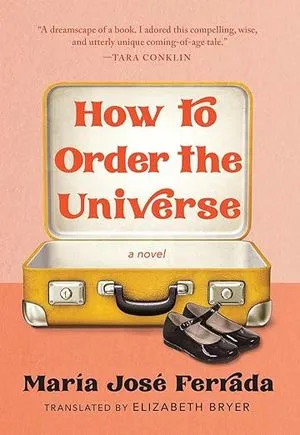
How to Order the Universe by María José Ferrada, translated by Elizabeth Bryer
In Pinochet-era Chile, a daughter joins her traveling salesman father on his trips across the country. She’s too young to understand the changes taking place around her. But when they cross paths with an enigmatic photographer, his presence threatens to upend their unusual way of life. How to Order the Universe creates a snapshot of a father-daughter relationship and a country on the brink of unmitigated change.

Dark Constellations by Pola Oloixarac, translated by Roy Kesey
Three interconnected stories spanning the nineteenth, twentieth, and twenty-first centuries in Argentina follow humanity’s need to organize and classify information in order to exert control. From the study of a hallucinogenic plant in 1883 to modern mass surveillance program in the 2020s, biologists, researchers, and hackers are both empowered and affected by the knowledge they seek.
I’m also very much hoping with the success of Ann-Helén Laestadius’s Stolen, not to mention the recent Netflix film adaptation, that we’ll get an English translation of her new historical fiction novel, Straff. Set in the 1950s and 1980s, this new book explores the Swedish government’s practice of sending Sámi children to “nomad schools,” not unlike the residential schools where Indigenous children in the Americas endured unthinkable abuse. Colonial and racist practices of the past laid the groundwork for the systemic discrimination Indigenous groups still face, and Straff provides an important look into the bigotry affecting Sámi people today.
If you’re interested in reading more translated fiction in the meantime, though, here are even more great books in translation to read:
12 Historical Fiction Books in Translation




